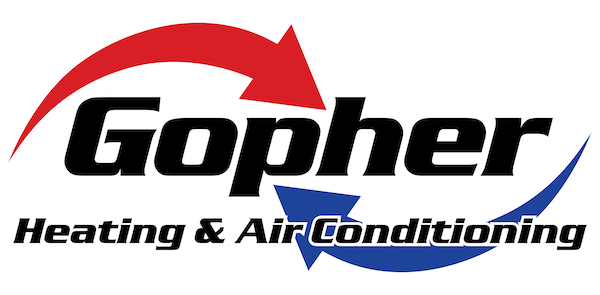Purchasing your first home is an exhilarating experience. You’re likely juggling a dozen things or more about making the right choice. We believe that understanding your future HVAC system is essential. The property’s HVAC system represents a significant investment and source of potential long-term costs, illustrating why a detailed inspection should be a top priority for first-time homebuyers.
In this guide, we’ll outline seven tips for discovering all there is to know about a home’s heating and cooling system. And if you want a more in-depth opinion from the experts, don’t hesitate to contact Gopher Heating and Air Conditioning. Our experienced team can help you compare your options with industry insights you won’t find elsewhere.
1. What HVAC System Are You Working With?
Start by clarifying what specific HVAC system the home features. Furnaces tend to last longer compared to air conditioners, and relatively new types of HVAC systems like heat pumps can offer average life spans longer than ever. Knowing the make and specific model gives you a clear understanding of how much it might cost in upkeep over time.
2. How Long Ago Was the System Installed?
It also helps to learn how old the HVAC system is when you’re considering a potential new home. For the most part, HVAC systems should survive for around 10-12 years. Learning its approximate installation date helps you anticipate future maintenance needs or when it might eventually stop working. Older systems are more prone to problems, so planning ahead of time for a replacement unit could be necessary sooner than you thought.
3. What Does the Warranty Cover?
Don’t forget to look into whether the HVAC system is covered by a warranty. If it is, this can lighten the load for maintenance expenses. HVAC warranties should take care of parts and labor, but it’s important to note that details will vary. Don’t forget to look into any terms you don’t recognize to ensure you understand your coverage and any possible out-of-pocket costs.
4. Does the System Have a Documented Maintenance History?
Take a close look at the maintenance history of the HVAC system, if that information is accessible. This kind of information can demonstrate if the repair needs are high or how much upkeep was provided. You should at least try to track down a history of key tasks like filter changes, which can indicate it received regularly scheduled tune-ups.
5. Do You Know Its Energy Efficiency Ratings?
Purchasing a home with a heating and cooling system with great energy efficiency isn’t just smart; it leads to lower utility bills and less of an impact on the environment. Try and find the seasonal energy efficiency ratio (SEER) ratings for air conditioning along with the annual fuel utilization efficiency (AFUE) for furnaces. Higher SEER ratings mean better cooling across the entire season, while high AFUE ratings mean the fuel is efficiently converted into useable heat.
6. Can You Spot Trouble During Your Inspection?
Even if you don’t have the know-how of an HVAC technician, you should still check out the HVAC system on your own. Look for potential issues that weren’t mentioned by the seller or real estate agent. This might consist of odd sounds, unequal airflow and attempts to cover up any serious damage.
7. Have You Sought Out Expert Advice?
If you’re unsure about the current state of the HVAC system, it’s never a bad idea to get a professional opinion from trained HVAC professionals. They can spot things you might miss, including refrigerant leaks, wiring issues or inefficient ductwork.
A Consultation with Gopher Heating and Air Conditioning Simplifies Your Home-Buying Journey
Choosing your first home is meant to be a joyful event, and Gopher Heating and Air Conditioning wants to ensure yours is too. Reach out with us at 952-373-0377. We can go over the details about how our HVAC services help make this process smoother, giving you what you need to step into your new home with confidence.



